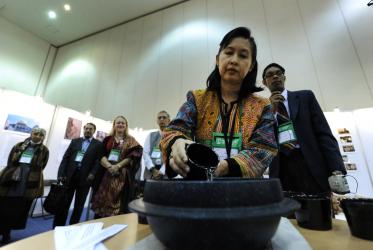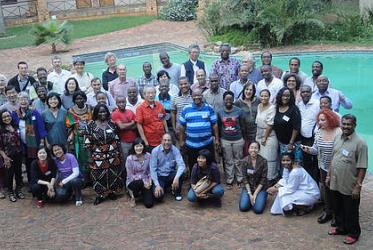Displaying 21 - 38 of 38
G20 summit: call to pray for peace in Hamburg
07 July 2017
G7 must address famine
22 May 2017
During Lent, a “carbon fast” can honour God’s creation
09 February 2017
WCC Executive Committee issues statement on climate justice
25 November 2016
Winners of WCC photo contest announced
09 May 2016
New video presents Ecumenical Advocacy Alliance’s call to action
13 January 2016
Consultation considers right to food in context of climate change
15 December 2015
Religious leaders highlight significance of water at WCC assembly
04 November 2013











